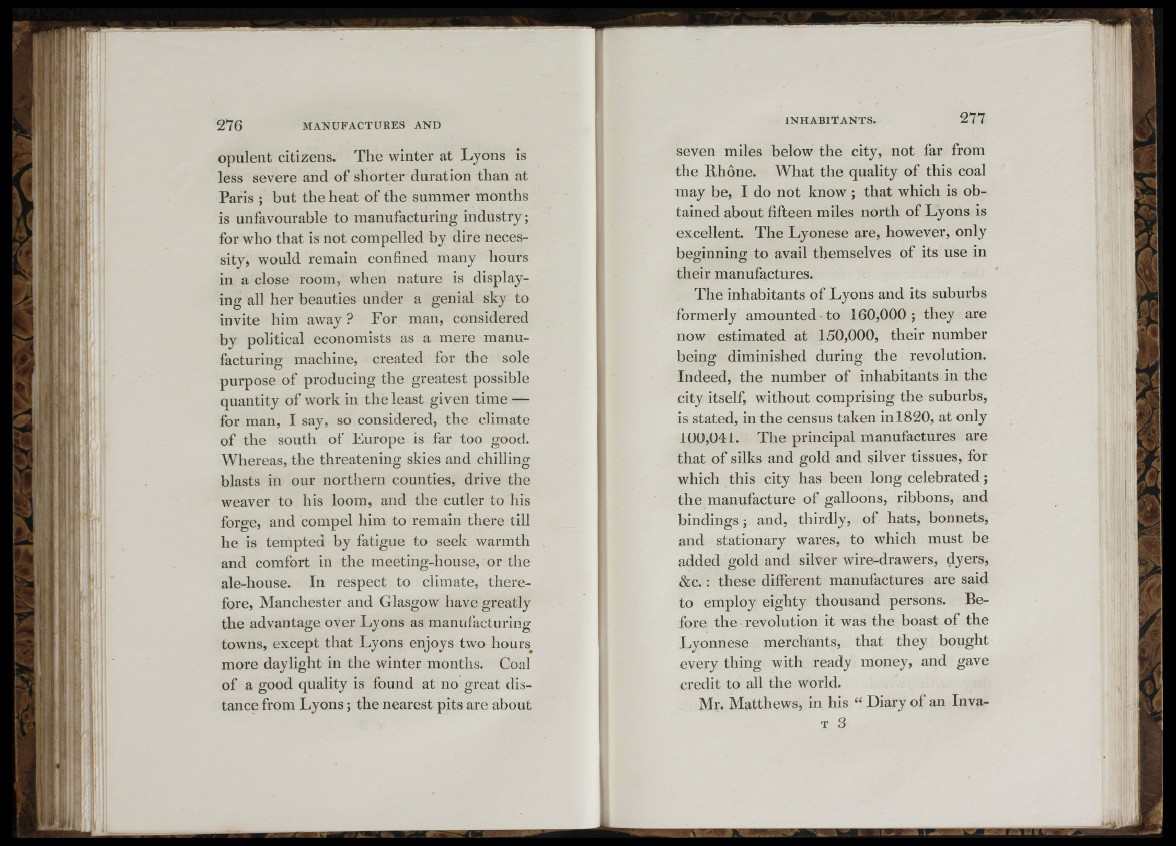
./•*
r#\
NNt e
::i
P ’
m
êtii ’
■ m T i
M
il ij '**■ JF
F--
276 M A N U F A C T U R E S A N D
opulent citizens. The winter at Lyons is
less severe and of shorter duration than at
Paris ; but the heat of the summer months
is unfavourable to manufacturing industry;
for who that is not compelled by dire necessity,
would remain confined many hours
in a close room, when nature is displaying
all her beauties under a genial sky to
invite him away ? For man, considered
by political economists as a mere manufacturing
machine, created for the sole
purpose of producing the greatest possible
quantity of work in the least given time ■
for man, I say, so considered, the climate
of the south of Furope is far too good.
Whereas, the threatening skies and chilling
blasts in our northern counties, drive the
weaver to his loom, and the cutler to his
forge, and compel him to remain there till
he is tempted by fatigue to seek warmth
and comfort in the rneeting-hoiise, or tlie
ale-house. In respect to climate, therefore,
Manchester and Glasgow have greatly
the advantage over Lyons as manufacturing
towns, except that Lyons enjoys two hours^
more daylight in the winter months. Coal
of a good quality is found at no great distance
from Lyons; the nearest pits are about
i
I N H A B I T A N T S . 277
seven miles below the city, not far from
the Rhône. What the quality of this coal
may be, I do not know ; that which is obtained
about fifteen miles north of Lyons is
excellent. The Lyonese are, however, only
beginning to avail themselves of its use in
their manufactures.
The inhabitants of Lyons and its suburbs
formerly amounted to 160,000; they are
now estimated at 150,000, their number
being diminished during the revolution.
Indeed, the number of inhabitants in the
city itself, without comprising the suburbs,
is stated, in the census taken in 1820, at only
100,041. The principal manufactures are
that of silks and gold and silver tissues, for
which this city has been long celebrated ;
th e manufacture of galloons, ribbons, and
bindings ; and, thirdly, of hats, bonnets,
and stationary wares, to which must be
added gold and silver wire-drawers, dyers,
&c. : these different manufactures are said
to employ eighty thousand persons. Before
the revolution it was the boast of the
Lyonnese merchants, that they bought
every thing with ready money, and gave
credit to all the world.
Mr. Matthews, in his “ Diary o f an Inva-
T 3
:JP%'